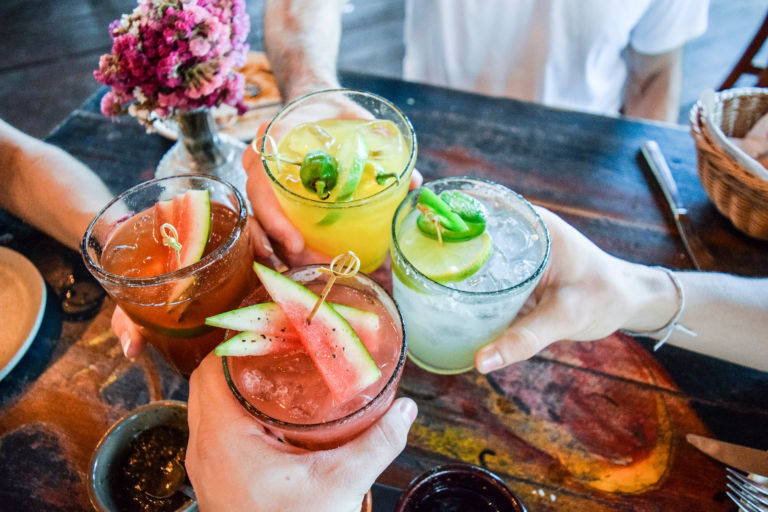Bourbon blogger Michael R. Veach visited The Crunkleton bar in Chapel Hill and opened his review with this:
North Carolina is a control state, meaning the state government controls alcohol sales in the state. It was not that long ago that bars did not exist as we know them in North Carolina. When you went to a restaurant you had to brown bag your wine and spirits. Things have come a long way in the past few decades and Gary Crunkleton is leading the way with even more changes. He recently convinced the state legislature to pass a bill allowing him to sell older bottles of spirits he may find to customers. There are restrictions – the bottle has to be a brand not sold today as a brand. For example the state considers a bottle of 1970s Yellowstone from the Shively distillery the same as today’s Yellowstone so he can not sell that Bourbon in his bar but he can sell Belmont from 1915.
Last month for Raleigh & Co.’s Jen Baker interviewed Craig Rudewicz, founder of Crude Bitters in Raleigh, which included this:
Which begs the question: are bitters alcohol? North Carolina is a controlled state, with very strict rules surrounding alcohol. Bitters have proof, like vanilla extract, getting a clean flavor from an alcohol base, so he researched bitters companies in other states, ABC laws and even downloaded entire statute. No one really knew what to do but someone finally decided that he was good to go, or maybe it was just that “they didn’t want to talk to me anymore.” NC’s quirky laws mandate that he has to buy his wholesale 5-gallon drums of alcohol from out of state — not from local sources — and that he has to use it within a certain timeframe.
Also last month, Time Warner Cable News reported on the plight of a Charlotte brewer losing a $130,000 investment in the Triad region:
Last year, the company expanded its market into the Triad, spending $130,000 on a distribution center in Greensboro.
It grew, producing about 20,000 barrels.
“There’s a state law on the books that says a company cannot self-distribute more than 25,000 barrels a year,” said Olde Meck”s Ryan Self.
After that, companies have to give distribution to a third party—so Olde Meck had to take a look at how it could downsize, or face stiff penalties.
“Of course, you think ‘what’s least efficient, what’s furthest from home base for us?'” Self said. “Unfortunately, that was the Triad market. We spent a year and half doing hard work, spending time up here and doing a lot of brand marketing. We’re now faced with undoing all that and not being able to sell to our clients up here.”
“When we had to break the news to our customers, I think shock and confusion was the reaction,” Kriston said.
Both owners of Olde Meck and restaurants like River Ridge Taphouse describe the law as antiquated, and they’re hoping folks like you will contact your state lawmakers to get it changed.
“96% of beer consumed in this state is made outside North Carolina,” Self said. “So when that happens, you see a wealth transfer.”
In 2013, Carolina Journal reported how that barrel limit was preventing another brewer, Red Oak Brewery, from being able to grow.
Readers versed in cronyism won’t be surprised to see the “winner” groups who benefit from the regulatory hurdles — distributors to whom brewers’ business is forced to go, and large national beer companies who can easily clear the hurdles that bring down some upstart local competitors — are the ones pushing to keep them in place.


